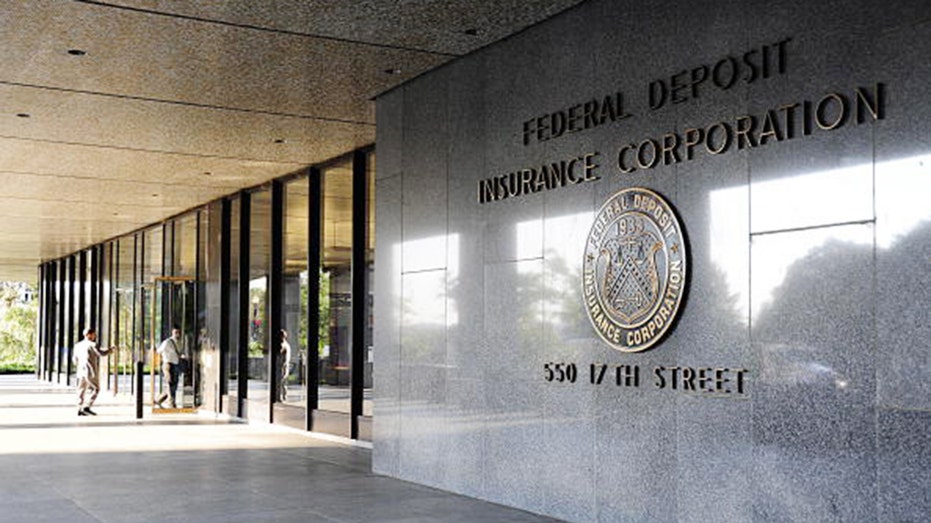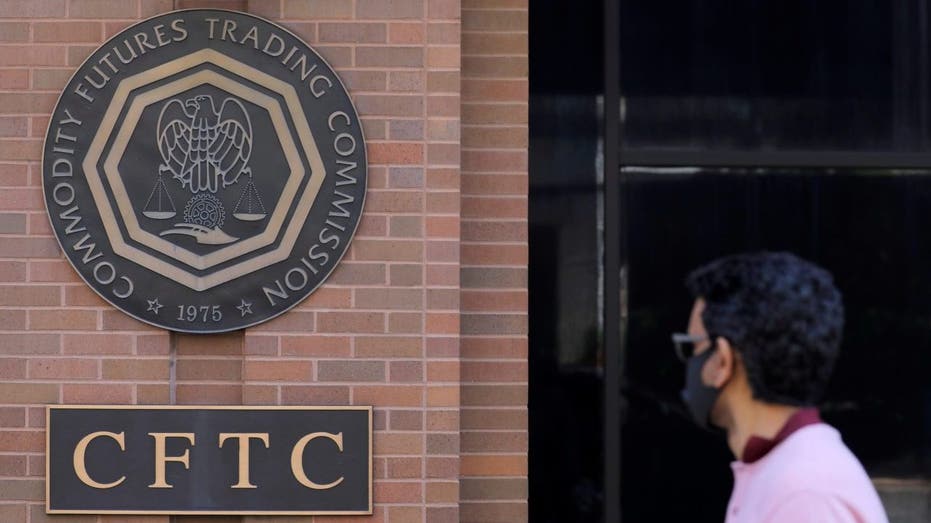US agencies seek tougher rules, internal probes on stock trading by federal officials
Lawmakers press for tougher trading curbs; moves follow Wall Street Journal series on officials’ widespread financial conflicts
Proposed 'PELOSI Act' bill could ban members of Congress from trading stocks
Fox News contributor Joe Concha slams Nancy Pelosi for her alleged involvement in her husband's stock trading on 'The Evening Edit.'
Several federal agencies are looking to tighten their ethics rules, while others have directed their internal watchdogs to investigate suspicious investing by officials, as lawmakers continue to press for tougher trading restrictions across the federal government.
The efforts follow a Wall Street Journal series that identified a sweeping pattern of financial conflicts across the executive branch, including finding that more than 2,600 officials invested in companies overseen by their agencies. In some instances, officials’ trading appeared to violate federal and agency rules that are intended to maintain the public’s trust in the government and keep officials from using their influence for personal gain.
The Federal Deposit Insurance Corp. and Commodity Futures Trading Commission are considering changes to their ethics rules; the Securities and Exchange Commission is proposing adding new requirements to its ethics program. And the FDIC, Commerce Department and Agriculture Department referred to internal investigators potential violations of conflict-of-interest rules.

The Federal Deposit Insurance Corporation headquarters is seen in this October 1, 2008 photo in Washington, DC. The Federal Deposit Insurance Corp. is considering overhauling its ethics rules to crack down on financial conflicts.(KAREN BLEIER/AFP via (Getty)
Taken together, the agency moves signal a widespread effort to combat conflicts within the executive branch. The agencies declined to comment on their efforts.
ORIGINAL STORY: GOVERNMENT OFFICIALS INVEST IN COMPANIES THEIR AGENCIES OVERSEE
Federal law bars officials from working on matters in which they have a substantial financial interest, but agencies have significant leeway in determining what restrictions to impose beyond that. Some agencies bar employees from owning stocks in any companies the agency regulates, while others permit such investments so long as the employee isn’t directly working on a matter that would affect the company.
The FDIC is considering overhauling its ethics rules to crack down on financial conflicts, including potentially restricting what technology stocks officials are allowed to own, current and former officials said. The Journal in December reported that three FDIC officials involved in discussions about tapping Microsoft Corp. as the agency’s primary cloud provider reported that they or their family members also owned the company’s stock. Following a Journal inquiry about the investments, the FDIC said it had referred the matter to its inspector general for review.
| Ticker | Security | Last | Change | Change % |
|---|---|---|---|---|
| MSFT | MICROSOFT CORP. | 413.60 | +12.46 | +3.11% |
Two of the officials who owned Microsoft stock have also been moved out of their previous jobs, according to an internal announcement. Robert DeLuca, who served as deputy chief information officer before going on military-related leave and returned to the agency on Monday, is now leading a cybersecurity initiative.
Jyotsna Jame later this month will move out of her post as deputy director of the Applications and Platforms Delivery Branch to oversee workforce and succession planning for the CIO’s office, according to the announcement. The FDIC said both moves were temporary.

People exit the headquarters of the U.S. Securities and Exchange Commission (SEC) in Washington, D.C., U.S., May 12, 2021. The Securities and Exchange Commission is proposing adding new requirements to its ethics program. (REUTERS/Andrew Kelly/File Photo / Reuters)
Mr. DeLuca and Ms. Jame didn’t respond to requests for comment. Mr. DeLuca said in December that he had a financial adviser who "directs and guides my retirement investment decisions."
PAUL PELOSI SOLD GOOGLE SHARES PRIOR TO DOJ ANTITRUST SUIT
The FDIC in December said its employees "are required by statute and by regulation to ensure their work is free of conflicts of interest." A spokesman declined to comment further.
Two other agencies, the Agriculture Department and the Commerce Department, referred financial conflicts identified by the Journal to their inspectors general.
The Journal had identified an Agriculture Department official who omitted large trades in corn and soybean futures from his reports. When the Journal contacted the agency about its findings, the agency’s ethics office referred the matter to its inspector general two days later, according to emails provided in response to a public-records request.
The agency and its inspector general declined to comment. The official has said that he tried to be scrupulous in his disclosures, and that the omissions were honest mistakes.

Signage is seen outside of the US Commodity Futures Trading Commission (CFTC) in Washington, D.C., U.S., August 30, 2020. The Commodity Futures Trading Commission signaled it might propose tighter rules surrounding the authorization of waivers from i (Reuters Photos)
The Commerce Department’s inspector general, following a Journal inquiry, began investigating a patent judge who was part of a panel that gave Google a win while his wife worked for the company and held a financial interest in it.
The inspector general’s office didn’t respond to multiple requests for comment on the status of the investigation. The Commerce Department said in December the judge hadn’t seen a filing showing Google had acquired the relevant patent application and that he had done nothing wrong. The judge declined to comment.
| Ticker | Security | Last | Change | Change % |
|---|---|---|---|---|
| GOOG | ALPHABET INC. | 324.40 | +1.30 | +0.40% |
Separately, the SEC last week proposed new ethics restrictions, including banning employees from investing in financial industry sector funds. The SEC already bars employees from owning or trading stocks that are under investigation by the agency, regardless of whether the employee is working on the matter.
The SEC’s ethics rules are stricter than those at many other agencies. But the Journal’s investigation found that those who violate the rules across federal agencies, including the SEC, rarely face severe consequences.
CONGRESS NEED TO STOP LETTING MEMBERS ENGAGE IN INSIDER TRADING
In one instance, an SEC official failed to report or clear his and his spouse’s financial holdings and trades for at least seven years—including stocks that SEC employees and their families weren’t allowed to own and some that posed a conflict with the official’s work. The agency’s inspector general referred the matter to the Justice Department, according to a report the inspector general provided to Congress.
A U.S. attorney declined to prosecute, and the unnamed official was ultimately suspended for seven days and gave up 16 hours of leave time. The SEC has declined to comment on the incident.
The CFTC also signaled it might propose tighter rules surrounding the authorization of waivers from its ethics rules, as well as for how employees document their disqualification from participation in a matter.
The Journal reported in October that the CFTC had permitted nearly 3,000 short sales made by an employee’s husband, contrary to the agency’s own rules. A CFTC ethics official approved the selling, a CFTC spokesman said, fearing that the commission "could possibly be sued by the employee if we said no." The official’s husband was a senior policy analyst at the FDIC while he was making the trades.
The spokesman declined to say what prompted the regulatory change and noted that no rule has yet been proposed. The notice appeared twice last year on a long list of proposals called the unified regulatory agenda.
CLICK HERE TO GET THE FOX BUSINESS APP
On Capitol Hill, a bipartisan pair of lawmakers reintroduced legislation that would ban members of Congress from trading stocks while in office. House Speaker Kevin McCarthy (R., Calif.) has signaled support for such restrictions but hasn’t committed to any proposals. Other lawmakers continue to press for stock-trading restrictions that would apply to the executive and judicial branches, too.
—James V. Grimaldi and Joe Palazzolo contributed to this article.




















